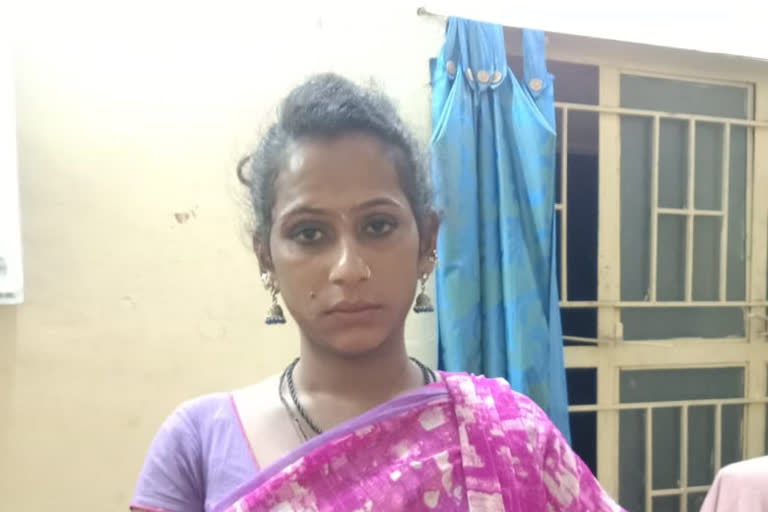New Delhi: Sonali, a transgender woman in her early 30s, was eking out a living by begging at traffic signals in east Delhi's Mayur Vihar before the government ordered people indoors to contain the spread of COVID-19 in late March.
After struggling for months to make ends meet, she had been eagerly waiting for June 1, when the easing of lockdown, Unlock 1.0, would begin.
Soon after Sonali got back to her routine, she was confronted with a new reality. Not only was there less traffic on roads, but people were also apprehensive about rolling down the windows of their cars and giving her alms.
"No one wanted to give us money. People are not even ready to roll down the windows to hear what we have to say," she said.
Like Sonali, many others from the transgender community have been hit hard by the pandemic.
Relegated to the sidelines of the society, many of India's estimated 4.88 lakh transgender people are forced to make a living through begging, dancing at celebrations like weddings, and sex work, according to rights groups.
Another transgender woman Ritupari (name changed), 38, who used to dance at celebrations, said the new normal "has no place for people like us".
"People are not inviting their close relatives to weddings and other celebrations, so why will they call us. Even if we go somewhere, we are looked down upon and shooed away," she said.
"Most professions we practised have been completely destroyed due to COVID-19," she rued.
Chandni (name changed), 42, an acute diabetic, used to beg on trains. She has slipped into depression after losing her means of livelihood.
Her brother said his once-chirpy sister has stopped talking and almost never steps out of the house.
"She has seen a lot in her life but the past few months have dealt a serious blow to her. She used to be so talkative and jolly. The entire house would light up when she would return home. Now she just keeps looking out a window," he said.
Ayesha Behra, an Odisha-based transgender woman and rights activist, said the members of the community also face a higher risk of contracting COVID-19 due to their living conditions.
"They mostly live in slum areas where there is no concept of social distancing. Around 10-15 of them stay together in one room, so social distancing is a luxury they cannot afford," she said.
Behra said she has been looking for alternative means of livelihood for transgender people.
"We recently joined hands with a few self-help groups and taught some of the transgender community members to make sanitisers and phenyl. We are also planning to train them to make perfumes," she said.
Another transgender activist Pushpa Mai, who is based in Jaipur, claimed many members of the community are facing increased domestic violence due to the loss of livelihood.
"A number of families were dependent on the earnings of the transgender members. Now when they are not able to earn, there has been an increase in violence against many of them. In some cases, the partner of the transgender person fought with them," she said.
Mai said she has been trying to help transgender people but more needs to be done.
"We are providing dry ration to them but it is not enough. They were given Rs 1,500 by the government in April but for how long will they survive on that," she said.
Akhila Sivadas, managing trustee and executive director of the Centre for Advocacy and Research (CFAR), a non-profit organisation, said that the community needs an emergency response to overcome the impact of the pandemic.
"At a time when COVID-19 has pushed them to a penurious state, bereft of hope and any sense of certainty about what the future holds, they need political will not be reflected in legislative enactment but in an emergency response that helps them to overcome the crippling effects of the pandemic," she said.
(PTI REPORT)
ALSO READ: Threat Group APT29 targets COVID-19 Vaccine Development



